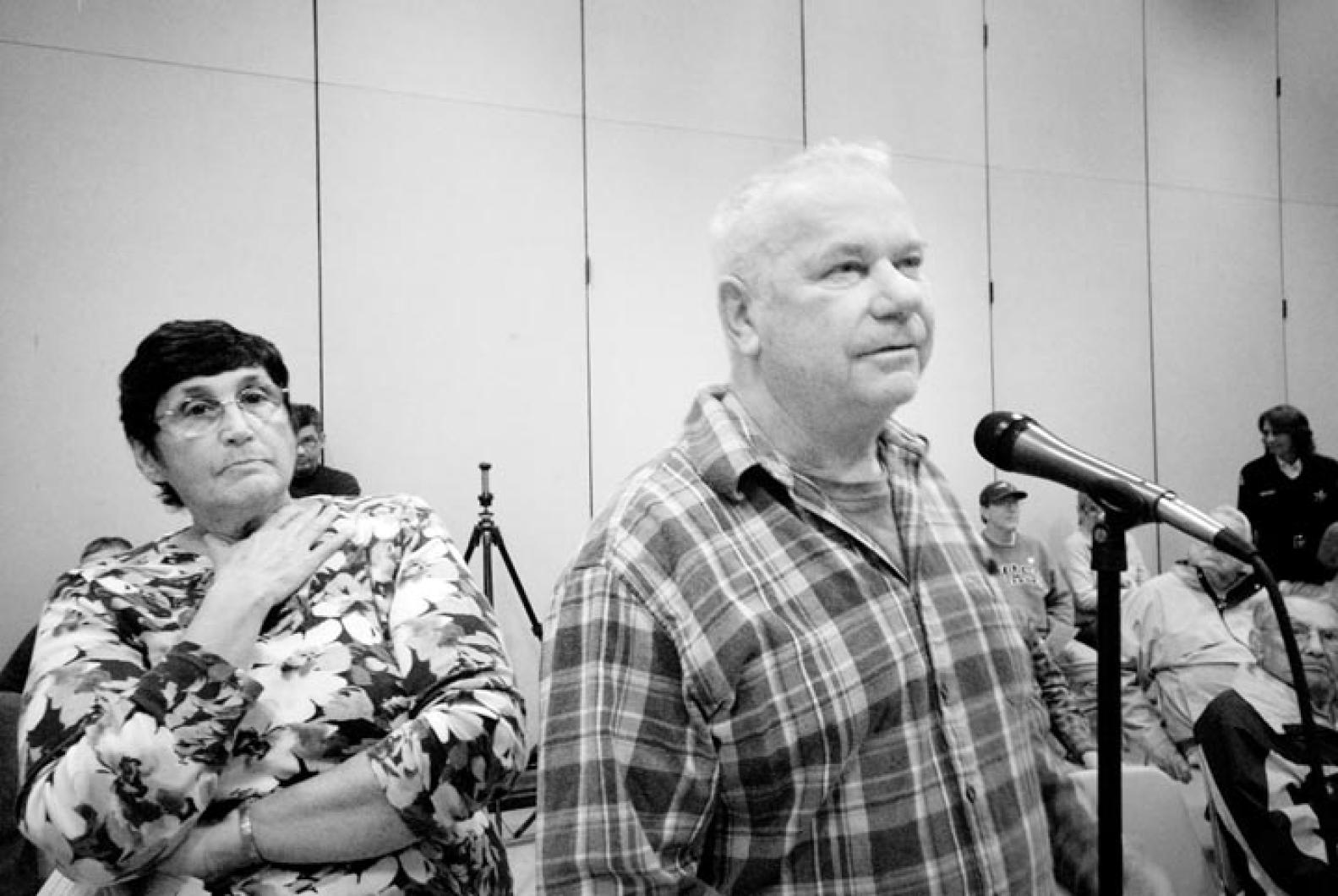From the spring 1986 editions of the Vineyard Gazette: It is town meeting season again, a season which always precedes the last frost in the ground and which reminds New Englanders annually of their forefathers who laid down this venerable system of self government. The late Joseph Chase Allen wrote of town meetings: “Originally conducted by farmers, fishermen and sea captains who in many cases knew little or no law, their common sense and homespun decisions kept things on an even keel all the same as they voiced the slogan that ‘We are the people and we shall be heard.’
“Those earliest town meetings were recorded by clerks who had little education and whose spelling was strange indeed, yet there is no evidence that town action was ever disputed or questioned after the dust had settled. No brass-bound attorney appeared later to attempt to set aside a moderator’s ruling. However heated the voters might have been at the time of a meeting, any interference by a third party, however well-armed with law books and high court decisions, would have been met with a united front of opposition.”
Today town meetings are practiced much the same as they were more than 300 years ago, although it is true that the complexity of government issues facing the people of 1986 is greatly increased. But the form and process and, most importantly, the principle of self-government as upheld by the town meeting remains unchanged.
The shortest annual town meeting on Martha’s Vineyard in 1986 took an hour and a half in Gay Head; the longest took four nights spread over five weeks in Tisbury. The issues uniting them and the other four Island towns, in an annual meeting season that began April 1 and ended May 29, boiled down to these few: money, land use, and the clear awareness that one town meeting a year no longer gets a year’s business done. Each town, struggled, in its own way, with the conflicting priorities and loyalties and values that come from trying to run towns geared to summer visitors with a form of government designed to serve generations of farmers, fishermen, and year-round merchants. All but Gay Head needed at least two nights to resolve - and in some cases left unresolved - questions ranging from the minuscule to the monumental.
In several cases, major decisions of the year came not at annual meetings, but at special sessions. Foremost among them was a bylaw imposing minimum lots of three acres as the law of the land in West Tisbury, a month before the annual meeting. Overwhelming majorities agreed with the planning board that the time had come, in the Island’s fastest growing town, to take control of the growth rate and protect precious groundwater.
In Gay Head, meanwhile, voters agreed to put up $47,000 toward extension of a pier off the town boat ramp at the West Basin, and to commit to a new town hall likely to cost half a million dollars.
Oak Bluffs spent most of its first evening in its two-night annual town meeting debating whether to create a new business zoning district near the blinker light at Barnes and Edgartown Roads. MVY Realty Trust needs the zoning change to build a new headquarters for Martha’s Vineyard National Bank, a supermarket and a complex of shops and offices. The vote came in 121 for the change and 112 against - well short of the required two-thirds vote indeed.
Like Gay Head, Tisbury voters talked about an overhaul in the personnel system, but concluded by refusing to let selectmen alone appoint members of the personnel board. The town meeting also refused to raise the ceiling on the salary for the building inspector or to create the position of full-time health agent, despite assertions from selectmen and the board of health about the legal requirements involved in those jobs, and the unwillingness of persons to seek those jobs at the salaries offered.
These belt-tightening measures - along with votes in May that reduced the summer police force and limited maintenance of roads and parks and cemeteries - add up to the price Tisbury will pay for fiscal peace in 1986-87.
Chilmark voters came to town meeting in late April to find a fiscal 1987 budget which town officials said should not require an override vote in the months ahead. At least some of the credit belongs to two overrides in 1985-86 that raised the ceiling on the town’s tax levy. While the town budget raised concern, this year’s annual session concentrated on the purchase by eminent domain of 50 acres of conservation land along Fulling Mill Brook.
Edgartonians also agreed at a two-night town meeting to chip in money to limit development of prime land - in this case, appropriating $184,000 toward the purchase of development rights to the 18.3 acres of farmland compromising Mindoro farm,
But while striking a blow for limited development in wide open spaces, the town meeting also voted to end a moratorium on construction along Upper Main street and to limit the building ban in the downtown business zones to just four months.
Compiled by Hilary Wall
library@mvgazette.com




Comments
Comment policy »